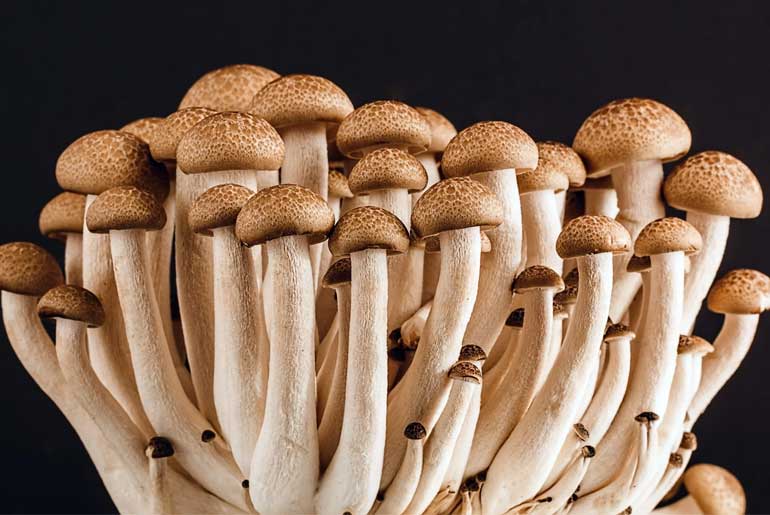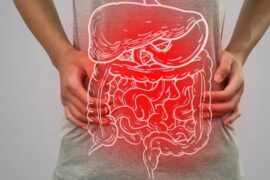A recent study from the University of Southern Denmark has explored the therapeutic potential of psilocybin, the key psychedelic compound found in certain mushrooms, through the practice of microdosing. While psilocybin has historically been known as a classic psychedelic substance, recent research has delved into its ability to assist in the treatment of psychiatric disorders like depression and addiction.
In this therapeutic approach, patients undergo a comprehensive therapeutic preparation process and then partake in a transformative psychedelic experience under the guidance of trained therapists, typically involving a high dose of psilocybin. Following this experience, the insights and revelations gained are integrated into the patient’s mental and emotional well-being over several therapy sessions.
Crucially, experiments with patients are currently underway at hospitals including Bispebjerg Hospital and Rigshospitalet. These studies aim to advance our understanding of how microdosing psilocybin may offer therapeutic benefits, particularly in the context of growing interest in its potential for self-medication in addressing various challenges, as seen in performance-oriented cultures such as Silicon Valley. The study’s initial findings, showing positive effects in rats, provide a promising foundation for further research into the potential benefits and risks of microdosing psilocybin, which could ultimately pave the way for innovative approaches to treating mental health disorders.
Microdosing in Rats:
In a recent study published in Nature – Molecular Psychiatry, Associate Professor Mikael Palner and PhD student Kat Kiilerich, both from the Research Unit for Clinical Physiology and Nuclear Medicine at the University of Southern Denmark, conducted research to investigate the effects of small doses of psilocybin on rats. Their primary focus was on examining the impact of repeated low doses of psilocybin, a practice commonly referred to as ‘microdosing.’ These doses were significantly lower than what is typically administered in therapeutic settings.
Microdosing has gained prominence, particularly in performance-driven cultures like Silicon Valley, California. This practice involves taking minute amounts of psychedelic substances, such as psilocybin, with the intention of achieving subtle cognitive and emotional enhancements. Mikael Palner, the last author of the study, noted that microdosing has gained popularity, in part, due to anecdotes and stories circulating on the internet that suggest it can be used as a form of self-medication to address various personal challenges. The study sought to provide scientific insights into the effects of microdosing psilocybin, shedding light on its potential benefits and safety, which could have implications for both medical and recreational use.
Effective for Stress and Compulsive Behaviors:
The study on rats yielded several intriguing findings regarding the effects of repeated low doses of psilocybin. Firstly, the rats displayed excellent tolerance to these repeated low doses, with no indications of reduced pleasure (anhedonia), increased anxiety, or altered locomotor activity. This suggests that microdosing psilocybin, at least in the context of this study with rats, is well-tolerated and does not induce negative behavioral effects.
One of the most noteworthy outcomes of the study was the rats’ increased resilience to stress following microdosing with psilocybin. They also exhibited a reduction in compulsive behaviors. Moreover, the study observed changes in brain connectivity, specifically an increase in the number of connections to the thalamus region. The thalamus serves as a crucial filtering center for our decision-making processes and concerns. This change in connectivity to the thalamus could potentially explain why many individuals report positive effects on their well-being from consuming small doses of psychedelic mushrooms. It suggests that microdosing psilocybin may have a positive impact on stress resilience and decision-making processes, providing a potential neurobiological basis for its reported benefits in terms of mental well-being.
A Promising New Approach:
The recent study not only provides valuable insights into the effects of repeated low doses of psilocybin but also establishes a scientifically valid method for conducting further research in this area. Importantly, it lends support to the anecdotal reports of the benefits of microdosing as a therapeutic intervention. This scientific validation is significant as it paves the way for additional research and potentially opens doors to entirely new approaches for the treatment of various mental disorders.
Furthermore, the study’s findings are particularly relevant in the context of the increased anxiety and stress prevalent in society today. The growing interest in microdosing, driven by anecdotal reports of its potential benefits, has led to a surge in the trade of psychedelic mushrooms. Some countries, such as the Netherlands, Australia, the USA, and Canada, have either legalized or are in the process of legalizing psilocybin for therapeutic purposes.
This trend underscores the importance of gaining a deeper understanding of both the positive effects and potential side effects of these substances, given their widespread use around the world. Such research can inform responsible and evidence-based approaches to the therapeutic use of psilocybin and related compounds, offering hope for individuals struggling with various mental health issues.
Enhanced Understanding with Potential:
Mikael Palner’s personal journey and motivation for researching psychedelic substances and psilocybin are notable aspects of this study. His interest in this field was sparked during his time living in Silicon Valley, California, around eleven years ago. During this period, he observed a surge in self-improvement practices that garnered significant media attention and encouraged more people to experiment with microdosing psychedelics.
He mentioned that the publication of books popularizing the concept of using small doses of psychedelics for both addressing mental issues and enhancing performance played a role in shaping his research interests. This influence motivated him to embark on the project that he has dedicated the past six years to. Now, through this research, they have made progress in determining appropriate dosages for rats, which enables them to investigate the effects of microdosing.
This advancement in understanding the impact of microdosing on the brain and mental challenges holds the potential to benefit both the scientific community and society as a whole. It contributes to the growing body of knowledge surrounding psychedelics and their potential therapeutic applications while shedding light on the broader implications of these substances in addressing mental health issues and cognitive enhancement.
Disclaimer:
The information contained in this article is for educational and informational purposes only and is not intended as a health advice. We would ask you to consult a qualified professional or medical expert to gain additional knowledge before you choose to consume any product or perform any exercise.








